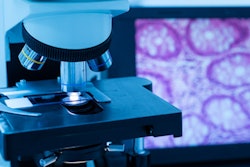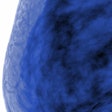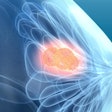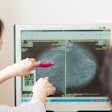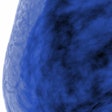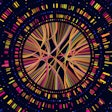
Swedish researchers have developed an artificial intelligence (AI) algorithm that improves the diagnosis of breast cancer tumors and the ability to predict the risk of recurrence, according to a study published September 29 in Annals of Oncology.
Researchers at the Karolinska Institutet trained the AI model to recognize characteristics of high-resolution microscopic images from patients classified with grade 1-3 tumors. The study is based on an extensive microscopic image bank of 2,800 tumors.
"One big advantage of the method is that it's cost-effective and fast, since it's based on microscope images of dyed tissue samples, which is already part of hospital procedure," Dr. Johan Hartman, PhD, of Karolinska University Hospital, said in a news release.
Every year, around 2 million women globally develop breast cancer. To diagnose the disease, biopsies are taken and graded by a pathologist by risk as low (grade 1), medium (grade 2), or high (grade 3). Molecular diagnostic methods are more accurate and less invasive, but are often costly and time-consuming, according to the study authors.
In this study, Hartman and colleagues showed that the AI-based method can further divide patients with grade 2 tumors into two subgroups, one high-risk and one low-risk.
The method is not yet ready for clinical application, but a product is under development by a startup company called Stratipath, which is supported by KI Innovations. The researchers will now be further evaluating the method with the aim to have a product out on the market by 2022.





